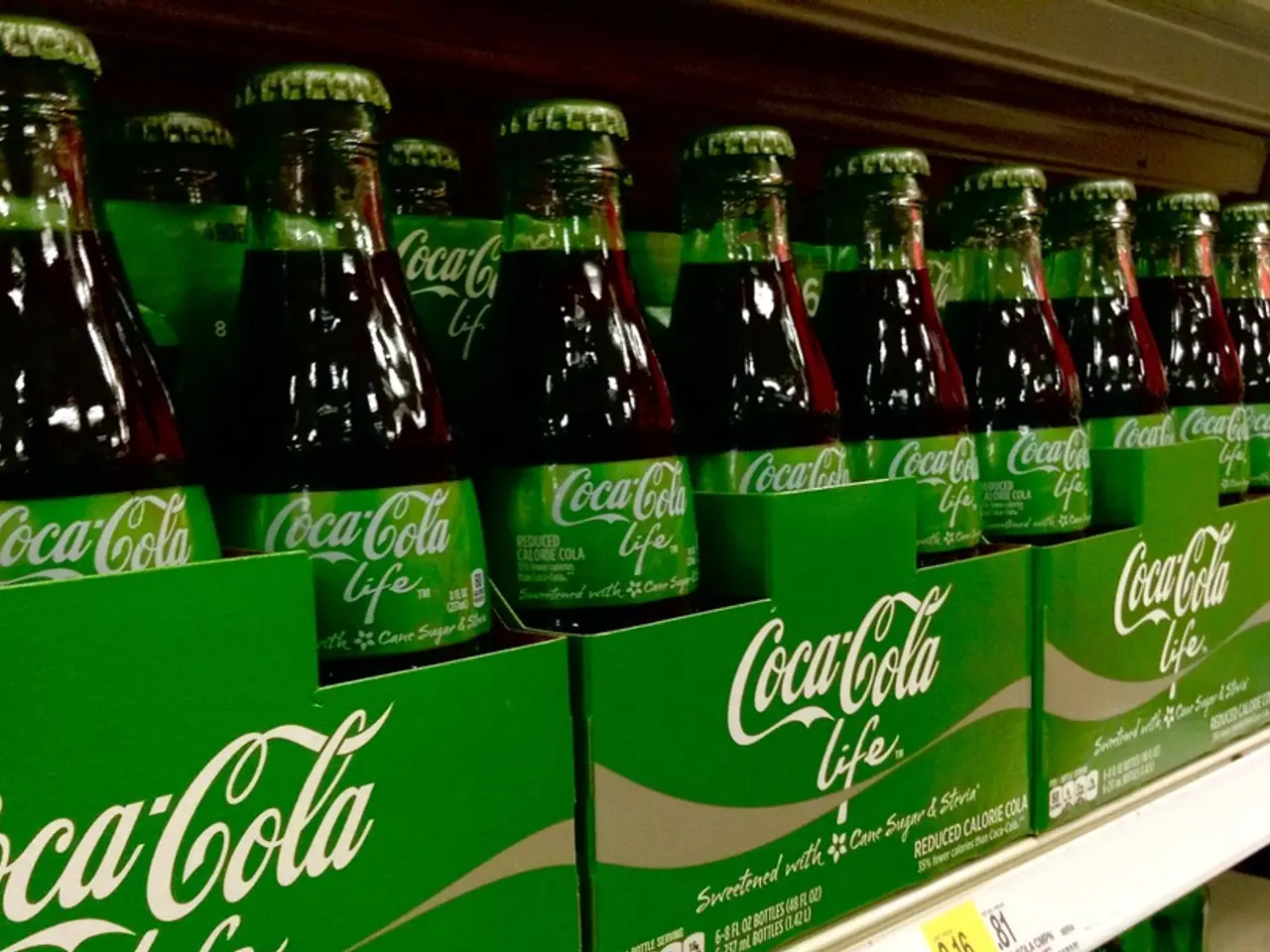Experiences a remarkable contrast in flavors.
The cola market is set for a shake-up in early 2026, as the iconic brand Pepsi is set to launch a new variant called "Pepsi Prebiotic Cola". This innovative drink promises to cater to health-conscious consumers, offering a reduced sugar content and the addition of prebiotics, which promote gut health.
The new flavour will contain only five grams of sugar and no artificial sweeteners, marking a significant departure from traditional cola recipes. In contrast, a glass of cola (250 ml) can contain up to 27 grams of sugar, equivalent to about nine sugar cubes.
The change in the recipe is a response to changing customer needs and the trend towards greater health awareness. Market trends indicate a broader shift in beverage consumption where nutrition, rebellion against conventional products, and sustainability take center stage. These factors contribute to soft drink consumers reducing sugary cola intake in favor of alternatives, including less sweetened, organic, or functional drinks.
In Germany, cola and cola mixed drinks are the most popular types of soft drinks, with an average consumption of 125 liters per capita each year. However, health concerns have increasingly influenced consumer preferences, leading to a rise in demand for beverages perceived as healthier or more natural.
While the exact health effects of sweeteners need further investigation, studies question the safety of sweeteners, reporting negative effects on gut flora and potential carcinogenic properties. The new Pepsi Prebiotic Cola contains up to three grams of prebiotics, which promote gut health, offering a potential solution to these concerns.
It's important to note that energy drinks, fruit juices, and smoothies are often mistakenly considered healthy but can contain high amounts of sugar. The shift towards healthier alternatives is not limited to cola, as the consumption of soft drinks, particularly cola, in Germany has experienced notable changes over the years.
Soft drinks, which are alcohol-free beverages made from water, flavors, sugar, minerals, and carbonic acid, are also used for garden care. This multi-purpose use further highlights the versatility of these beverages in everyday life.
In conclusion, the launch of Pepsi Prebiotic Cola signifies a step towards healthier soft drink options, reflecting the growing demand for nutrition and sustainability in the food and beverage industry. As consumers become more health-conscious, it's likely that we will see more innovative products like this one in the future.
- The new Pepsi Prebiotic Cola, with its reduced sugar content and addition of prebiotics, aligns with the trend towards health-and-wellness, promoting gut health and catering to health-conscious consumers.
- Unlike traditional cola recipes, which can contain up to 27 grams of sugar, the innovation in Pepsi Prebiotic Cola's recipe includes only five grams of sugar and no artificial sweeteners.
- Consumer trends indicate a shift in beverage consumption towards nutrition, rebellion against conventional products, and sustainability, with soft drink consumers reducing sugary cola intake in favor of healthier or functional drinks.
- In response to these changing consumer preferences, the shift towards healthier alternatives is not limited to cola, as the consumption of soft drinks, particularly in Germany, has experienced notable changes over the years.




